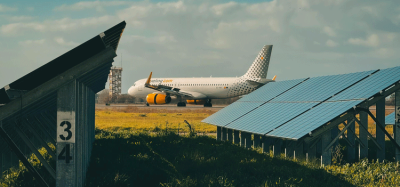Global aviation strategy to reduce carbon emissions is confirmed
- Like
- Digg
- Del
- Tumblr
- VKontakte
- Buffer
- Love This
- Odnoklassniki
- Meneame
- Blogger
- Amazon
- Yahoo Mail
- Gmail
- AOL
- Newsvine
- HackerNews
- Evernote
- MySpace
- Mail.ru
- Viadeo
- Line
- Comments
- Yummly
- SMS
- Viber
- Telegram
- Subscribe
- Skype
- Facebook Messenger
- Kakao
- LiveJournal
- Yammer
- Edgar
- Fintel
- Mix
- Instapaper
- Copy Link
Posted: 9 October 2010 | Airports Council International (ACI) | No comments yet
At the close of the UN ICAO 37th Assembly, the national delegations reached an historic agreement for a globally harmonized approach to addressing aviation’s CO2 emissions…
At the close of the UN International Civil Aviation Organization (ICAO) 37th Assembly, the national delegations reached an historic agreement for a globally harmonized approach to addressing aviation’s CO2 emissions – the first United Nations Agency to establish such a global agreement for its sector.
ACI Director General Angela Gittens says, “We are pleased to see that ICAO national delegations accept the need for a shared global vision and common goals as well as their willingness to move ahead on the agreed positions in the Resolution, despite some remaining questions that will be addressed in future discussions. The aviation industry has shown that we are committed, proactive and realistic. It is fair to say that, more than any other sector, aviation has demonstrated determination to make progress by adopting a responsible approach that engages all parties.”
ACI fully supports the three key targets covered in the resolution: fuel efficiency improvements of 2% per annum through to 2050, a mid-term aspirational goal of capping aviation’s carbon emissions by 2020, and a global standard for aircraft engines targeted for 2013. The resolution also calls for initiatives to be reviewed by the 38th Assembly in 2013, including a framework for market-based measures (MBMs), a feasibility study on the creation of a global MBM scheme and guiding principles for States to use when designing and implementing market-based measures for international aviation.
Gittens says, “Airports, airlines, air navigation system providers and aviation manufacturers have been working together for five years now to establish a global sectoral approach and common targets. We have invested in developing a stronger dialogue between ICAO and industry representatives. ICAO has opened its doors to these industry contributions, and it is gratifying to see that this exchange of information and proposals has enabled us to contribute meaningfully to a globally harmonized agreement for addressing CO2 emissions.”
The agreement comes two months before negotiations are again undertaken by these very same States at the 16th Conference of the Parties of the United Nations Framework Convention on Climate Change (UNFCCC) meeting scheduled for December in Mexico, where ACI and its members will promote a global sectoral approach for international aviation in this new round of discussions. Collaborative efforts undertaken by airports with airlines and air navigation service providers are an important component of maximizing fuel efficiencies.
With national infrastructure already included under the Kyoto Protocols, airports have long been involved in carbon emissions reduction initiatives. As a result, a wide range of alternative energy programmes have been implemented at innumerable airports worldwide. ACI has published a manual that provides best practice guidance for greenhouse gas management at the airport, which is available for download free of charge on the ACI website at http://www.aci.aero/ , and also promotes training programs and specialized seminars to assist airports in selecting and implementing environmentally sustainable programmes.
Gittens concludes, “This resolution is a great step forward. At the same time, we must not forget that for airports and the local communities we serve, noise and local air quality are equally critical issues. During an environmental panel session at our upcoming ACI World annual conference in November, we will address the question of how to push forward on all three agendas and will continue to promote global standards in all three areas through our on-going work at ICAO in the Committee on Aviation Environmental Protection (CAEP) where substantial progress on NOx emissions and noise limitations has been made.”

















